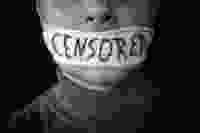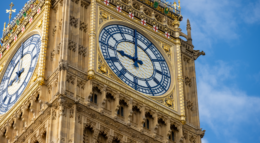
Expression is the foundation of all freedom
Francis Hoar writes that we have gone too far in seeking such strict restrictions on speech, and that we need to learn the value of the freedom of expression again.
Freedom of expression is the root not only of all freedom but of the development of civilisation. It is through speech that mankind has traded, tested ideas and advanced science, technology, the liberal arts and all the other elements that have contributed to the development of mankind. As Matthew Tindal put it in 1704: 'In a word, as there's no Freedom either Civil or Ecclesiastical, but where the liberty of the Press is maintained; so wherever that is secured, all others are safe.'
Speech challenges. Speech exposes. Speech reveals. But speech will ever present a threat: to weak ideas, to the state and to all who seek to control.
The revolution in communication generated by the birth of the internet came after the greatest victory for freedom since the defeat of Nazism, in the liberation of the Eastern Bloc from totalitarian communism. It was in the luxury of those next few years that Francis Fukayama could say that we had reached 'the End of History'.
We hadn't. The world has since seen a decline in the value it places upon freedom; and the last 18 months have seen the culmination of a growing political trend that puts safety above freedom. Never before have liberal democracies imposed wholesale and unqualified proscriptions on political protest – a right inextricably linked with that of freedom of speech and without which it is robbed of much of its power.
A troubling idea has gained traction: that we must 'correct' if not censor those who contradict 'truth'. Yet 'truth' is rarely unqualified. It is only through human experimentation, endeavour and thought that we can get closer to 'truth'; and only by uncovering layers of meaning, which we may only uncover through discussion and debate. And if absolute 'truth' may be identified, the answer is not to supress those who challenge it but to cultivate an environment of openness, in which lies are impossible to sustain because of the freedom of others to expose them.
In 'On Liberty', John Stuart Mill identified that the liberty of discussion is inextricably linked to the liberty of conscience; that a free and democratic society is one that recognises that there can be no infallible arbiter of truth; and that no individual or body has the right to appoint one. Moreover, 'the usefulness of an opinion is itself a matter of opinion: as disputable, as open to discussion and requiring discussion as much, as the opinion itself.'
A further danger is the notion that speech must be censored to prevent distress caused by speech that is hurtful or offensive. The government's proposed Online Safety Bill would require social media companies to remove content that could cause 'a significant adverse physical or psychological impact on an adult of ordinary sensibilities', even if that speech was not itself criminal (eg harassment) or a civil wrong (such as libel). The judge of such an 'impact' will be social media companies and (on review) the state. Given the trend towards censoring even academic debate to 'protect' the public from 'dangerous' challenges to public health policy and the decline in any understanding or tolerance for risk, it is not difficult to see how broadly this might be applied.
'In Protection of the Freedom of Speech', the Report I have written commissioned by Laurence Fox, opposes the Online Safety Bill. And, recognising that social media companies have become quasi-monopolies for the expression of particular forms of political speech, it proposes a legal duty not to remove any 'organic' content unless a crime or civil wrong is committed.
The Report argues for a new protection of the speech of employees that does not depend upon their having a particular, coherent 'political philosophy' or religion but protects all speech. It would be for the employer to prove that an employee's speech outside their workplace would cause serious damage to the employer's reputation.
Finally, the Report opposes the Scottish Hate Crime Bill, proposes the reform of section 5 of the Public Order Act 1984 (which criminalises 'abusive' words that may simply cause 'distress') and the abolition of guidance requiring the police to investigate 'hate incidents' even where there is no suspicion of a crime being committed.
But such measures can only go so far. What is needed is a revolution in public outlook. A country whose citizens have become used to seeking the instruction of the state before deciding whether to leave their own homes needs to re-acquaint itself with the freedoms that are its greatest heritage; and its citizens must learn that the more they rely upon the state as a protector, the less control they will have over how and in what way they are protected.
For while freedom of expression is the gateway to all freedom, it is no more than that. The British people must walk through the gate.













